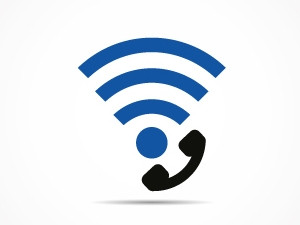
Cheaper local and international cellphone calls, better connections in areas where signal is shaky and even high-definition calls may be in the future for SA's mobile consumers, with operators exploring WiFi calling as an alternative voice technology.
Earlier this month, the UK's largest mobile operator EE launched WiFi calling services in a bid to enable users to make calls and send texts via their home or office WiFi networks where mobile coverage is poor.
Vodacom parent Vodafone revealed about a month prior to EE's service going live that it plans to offer commercial voice services over WiFi and long-term evolution (LTE) networks "this summer" - SA's winter.
The service uses WiFi technology to provide better mobile phone coverage and is usually based on a smart WiFi app pre-loaded onto smartphones.
Locally, Vodacom is investigating WiFi calling as a possible solution to coverage deficits, while Telkom says there is benefit in enabling customers to make calls using broadband access.
Telkom communications head Jacqui O'Sullivan says the company is looking at offering more products and services, including voice over broadband offerings that leverage fibre, WiFi and LTE-Advanced platforms.
Neither MTN nor Cell C had responded to queries by the time of publication.
Multiple benefits
Apart from addressing areas with limited cellphone signal - including remote rural locations and urban areas that have seen challenges to masts being erected or activated - analysts say WiFi calling could offer a range of consumer benefits.
BMI-TechKnowledge telecoms specialist Tim Parle notes the calling technology requires a mobile operator-sponsored app on users' smartphones and offers the advantage of wider bandwidth. This, he says, allows for high-definition voice calls, which have more bass and treble than regular GSM calls.
The tariff structure related to WiFi calling would presumably mean these calls would be cheaper than using the mobile network itself, says Parle, "or even free".
World Wide Worx MD Arthur Goldstuck says, providing a WiFi call is made from a static location (and not from a moving vehicle), users would get a stronger signal with less likelihood of a dropped call as volume of calls increases.
Ovum analyst Richard Hurst adds the biggest benefit of WiFi calling would be the reduced cost of calls, which would be a welcome development for mobile consumers, given recent moves to up contract prices. "Ideally, there should be no additional cost save the data costs."
Hurst notes WiFi calling would also be different to services consumers may be familiar with at the moment, like Viber, as there would be no login required, and calls and messages would be directed to the same mobile number - making call management easier for the end-user. "The WiFi connection will also allow for lower cost international calls."
SA's operators are also considering using wireless technology to push LTE over unlicensed spectrum - a move that could provide a stop-gap solution to spectrum challenges as data demand surges.
Share